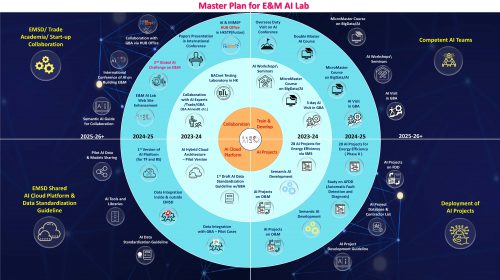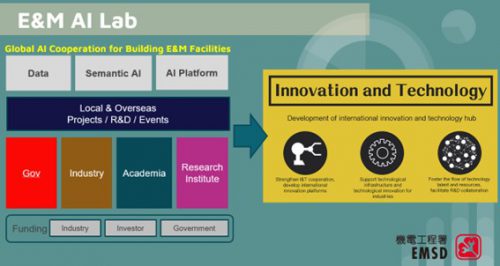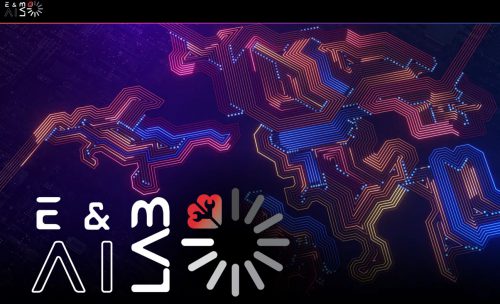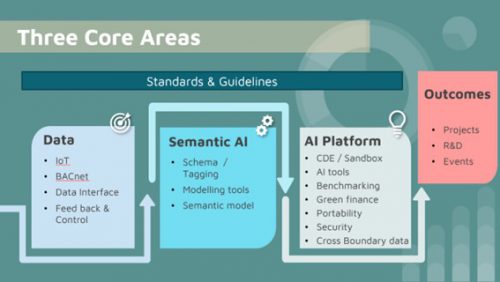
For complete project information please download: SB_HKC EMSD Submission_20240531
Introduction of E&M AI Lab
The E&M AI Lab is not a physical laboratory but is a collaborative initiative launched by the Electrical and Mechanical Services Department (EMSD) in 2022, in collaboration with stakeholders from Government/Authorities, Industry, Academia, and Research Institutes. The initiative aims to accelerate effective partnerships in support of Big Data and AI Development on Building E&M Facilities.
Direct partnership supports and advisory services can be offered to members, parties, or teams wishing to foster stronger collaboration between stakeholders and sectors, and enhance their capacities in forging Big Data and AI-related research and development on Building E&M Facilities. The Lab supports the development of Big Data and AI applications on Building E&M Facilities to combat future challenges, including but not limited to carbon neutrality, smart city initiatives, and others. Three core areas have been identified as focus points: 1. Data Hub, 2. Semantic AI, and 3. Platform.

Concept of E&M AI Lab

E&M AI Lab Website: https://enmailab.org/en

Three core areas: 1. Data Hub, 2. Semantic AI, and 3. Platform.
Savings Narrative:
Major Chiller Plants Optimization Projects, the annual energy savings achieved amount to approximately 1.875M-kWh (6.75TJ) and there are numerous projects in progress with an approximated saving of around 6.53M-kWh (23.5TJ) annually.
As buildings are major contributors to electricity demand in urban cities, the popularisation of AI applications in building energy management will have a significant impact on reducing overall energy consumption and carbon emissions, and contribute to APEC’s energy intensity reduction goal. As demonstrated from the multiple successful cases presented in earlier section, considering Heating, Ventilation, and Air-conditioning (HVAC) systems in commercial buildings in HKC account for 28% of the total building electricity consumption, a 6-12% improvement would have potential to reduce overall building energy consumption by 1.5-3.0%, i.e. 1,800-3,600TJ annually.
As APEC member economies account for around 60% of the world’s energy consumption, and in light of the rapid economic development and increasing urbanisation rate, AI applications in building energy management will make a significant impact in energy supply chain in a global scale.